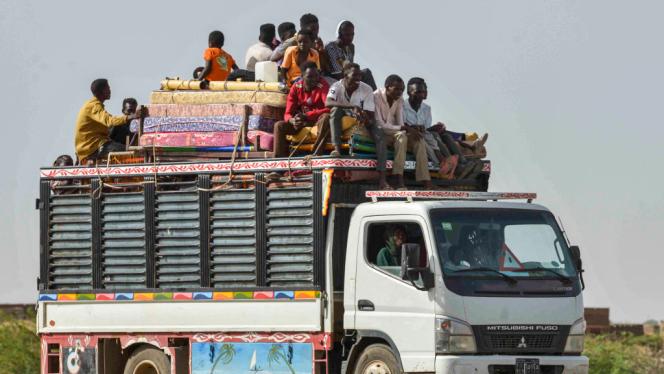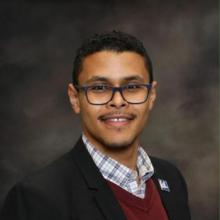Thursday 21 November 2024
UAE meddling and western apathy form a deadly combination in Sudan

A neocolonial conflict dynamic is ravaging Sudan and undermining Sudanese aspirations for peace, justice and sovereignty
Introduction
The conflict in Sudan has deep historical roots, but its contemporary manifestations are often shaped by neocolonial extra-regional forces seeking to exploit the nation’s resources and shape its political landscape. One such actor is the United Arab Emirates (UAE), whose involvement in arming the Rapid Support Forces (RSF) has exacerbated tensions and prolonged the suffering of the Sudanese people. Western governments’ position of indifference towards Sudan’s conflict is also a major exacerbating factor, as they neither restrain their Gulf allies, nor wield their influence to bring about dialogue.
The tendency of some Western powers to equate the RSF militia and the Sudanese army – the belligerents in this conflict – has created a problematic narrative that undermines efforts to address human rights abuses and hold perpetrators accountable. This essay explores the neocolonial dynamics at play in Sudan’s conflict, focusing on the UAE’s destructive role, and argues that true peace and stability is intimately linked with obtaining genuine national sovereignty in Sudan.
Neocolonialism in Sudan
To begin with there is a difference between flag independence and bonafide independence. Flag independence is when an imperial power absconds, is forced out or leaves voluntarily, nominally allowing people in the former colonially controlled territory to begin enjoying sovereign nation-statehood. They get a flag and declare independence. Important, thinkers like the first Ghanaian president Kwame Nkrumah however realised that flag independence was not the end of the decolonising process or the realisation of its goal, but the beginning of a new kind of struggle.
He coined the term “neocolonialism”, to describe the ways former imperial powers retain levers of influence that allow them to extract resources, cultivate favourable leaders and more broadly constrain the sovereignty of newly independent peoples. He believed this problem could only be overcome through developing the capacity to resist this neocolonial coercion in its economic and political forms. “The best way of learning to be an independent sovereign state,” he told Ghana’s legislative assembly in 1956, “is to be an independent sovereign state.”
In the case of Sudan, the legacy of colonial rule has left the country vulnerable to external manipulation and interference like other postcolonial African states. Following Sudan’s independence from British and Egyptian colonial rule in 1956, the nation has struggled to assert its sovereignty amidst internal conflicts and external pressures. The colonial legacy left deep scars on Sudan’s social, political, and economic fabric, legacies which are apparent to this day, that both internal and external actors have exploited.
In the case of Sudan, the legacy of colonial rule has left the country vulnerable to external manipulation and interference like other postcolonial African states. Following Sudan’s independence from British and Egyptian colonial rule in 1956, the nation has struggled to assert its sovereignty amidst internal conflicts and external pressures.
The Role of the UAE
Initial reporter in western media about UAE involvement in Sudan began trickling through last summer. The Wall Street Journal reported in August that the UAE was smuggling arms to the RSF through Uganda. Sudanese academic Khalid Mustafa Medani asked in a post on X: “The question is will this official documentation of what is well known actually impact policy?” That was followed by another report by the New York Times last September which found that the UAE had been using a hospital in Chad to supply the RSF. “For Sudanese critics, the Emirati meddling represents an outrageous duality — a country that talks of peace while fueling war, and that claims to be helping Sudanese refugees while supporting the fighters that forced them to flee in the first place.”
By then the cat was truly out of the bag and many people’s suspicions of direct UAE involvement became clear. Yasir al-Atta, a senior figure in the army broke the silence, calling the UAE a “mafia state”, accusing it of sending planes to “support the Janjaweed.” The Sudanese government, reconstituted in Port Sudan, had expelled 15 Emirati diplomats. The UN had backed up the allegation with its own report, which the UAE denied. Al Jazeera’s Sudan correspondent Hiba Morgan told the Columbia Journalism Review: “I know for a fact, for example, that the RSF is being backed by the UAE, but you don’t hear that a lot.” Whilst Ellen Johnson Sirleaf, Liberia’s former president, called on the UAE “to renounce and sever any ties with the criminal forces of the RSF.”
The RSF, established initially as a paramilitary force by the Sudanese government, has been accused of committing gross human rights abuses and atrocities against civilians in conflict zones such as Darfur which is why the Emirati support has caused widespread concern. UAE’s provision of arms and financial support to the RSF not only sustains their oppressive activities but also undermines efforts towards peace and reconciliation in Sudan.
UAE’s involvement in Sudan is multifaceted. Various interests drive it, from geopolitical competition with its rivals and the desire for prestige and regional influence, to more tangible pursuits like gaining access and control of Sudan’s mineral, metal and agricultural resources. Sudan’s natural resources, including oil, gold, and arable land, present lucrative opportunities for investment and exploitation. Gold is a particular motivating factor. A Reuters report found that the UAE was the “biggest destination” for African gold and Sudan, Africa’s third-largest producer of the rare metal, topped the chart of exporters, alongside Mali and Libya. Mohamed Hamdan Dagalo (popularly known as Hemedti), the wily leader of what is “the largest private army in Africa”, owns several mines which he assumed control after he took over parts of Darfur. A report by UN investigators found that proceeds from gold sales have been fuelling the war.
UAE’s provision of arms and financial support to the RSF not only sustains their oppressive activities but also undermines efforts towards peace and reconciliation in Sudan.
Abu Dhabi, as one Emirati academic put it “does not perceive others to be peers-in-power, rather it sees itself as leading the fold.” The UAE as a result sees Sudan as a strategic theatre in the region and has sought to bolster its influence through various means, including military support for the RSF. UAE’s involvement in arming the RSF serves to maintain its extractive relationship with Sudan while consolidating its influence in the country through one of its key actors. Michelle D. Gavin, a former US ambassador in Africa, warned that “in pursuit of influence and security, the UAE may end up tipping the entire region into chaos.” In her article, Gavin also warned of western indifference to these emerging dynamics which further exacerbates the neocolonial dynamics at play.
Instead of fostering sustainable development and prosperity for the Sudanese people, UAE’s activities often exacerbate existing inequalities and contribute to the marginalisation of local communities.
The exploitation of Sudan’s resources by external powers like the UAE perpetuates a cycle of poverty, conflict, and instability. While Sudan’s natural wealth has the potential to uplift its people and drive economic development, the reality is often far from this ideal. Instead, the extraction of resources benefits a select few, including foreign corporations and elites, while the majority of Sudanese people are left behind and impoverished. The RSF, an Emirati proxy, built a “network of front companies and banks” that extended its control over Sudan’s key sectors, including mining, telecommunications, and agriculture, during the transitional period. Hemedti is a key figure in both the war going on in Sudan and this “paramilitary-industrial complex” that he has constructed. His consolidation of power has further entrenched the cycle of poverty and instability, as resources that could be utilised for the nation’s development are diverted.
Western indifference
In a piece for Al Jazeera, Filippo Grandi, United Nations High Commissioner for Refugees, Martin Griffiths, the head of the UN humanitarian agency, Cindy McCain, the World Food Program director and Catherine Russell the Unicef director wrote: “For a brief moment, the eyes of the world were on Sudan as civil war swept the nation last April, following the collapse of the fragile power-sharing agreement between the Sudanese Armed Forces and the Rapid Support Forces. Since then, the brutal conflict has vanished from the international agenda as swiftly as it has laid waste to the country.”
That they joined to deliver this message demonstrates both its urgence, both also its neglect. They described Sudan as a “forgotten crisis.” “8.5 million people have been forced from their homes,” they warned, and “nearly two million have fled over the borders, most of them into Chad, South Sudan and Egypt, to escape the bloodshed. More than half of those seeking sanctuary are children.” In one camp in Darfur, the Guardian reported that a child dies every two hours.
Despite the gravity of the situation, the west has largely been indifferent. The attempt by Germany and France to raise the profile of this issue is a welcome rejoinder but comes very late in the game.
The US has also imposed sanctions on front companies in the UAE linked to Sudan’s Rapid Support Forces (RSF). However, these measures are inadequate as they do not target RSF leader HemeDti or his UAE supporters. These targeted sanctions inadvertently suggest that the genocidal RSF militia is only partially held accountable and don’t tackle the source of the issue.
The Quest for True Sovereignty
Achieving lasting peace and stability in Sudan requires addressing the root causes of conflict, including neo colonial exploitation and external interference. The Sudanese people have long yearned for true national sovereignty and a democratic state free from the influence of external powers seeking to manipulate their destiny for their own gain. Genuine sovereignty entails the right to self-determination, control over national resources, and the ability to chart a path toward peace and prosperity on one’s own terms.
However, achieving true sovereignty in Sudan is no easy task. But as the inscription below Nkrumah’s statue outside the Ghanaian parliament says: “We prefer self-government with danger to servitude in tranquillity”. It requires confronting entrenched interests and challenging the status quo. The Sudanese people have demonstrated resilience and determination in their quest for freedom and justice, but they face formidable obstacles, including external interference and internal divisions.
Conclusion
The conflict in Sudan cannot be divorced from its historical context of colonialism and neocolonial exploitation. UAE’s destructive role in arming the RSF is symbolic of the broader dynamics of external interference and exploitation that continue to plague the nation. True peace and stability can only be achieved through the attainment of genuine national sovereignty and liberation from external forces seeking to exploit Sudan’s resources and meddle in its political landscape. If Sudan remains a pawn in the geopolitical ambitions of external powers, it will continue to be torn apart by conflict and instability. Only by reclaiming control over its destiny and asserting its sovereignty can Sudan hope to break free from the cycle of exploitation and build a future of peace and prosperity for all its citizens.






